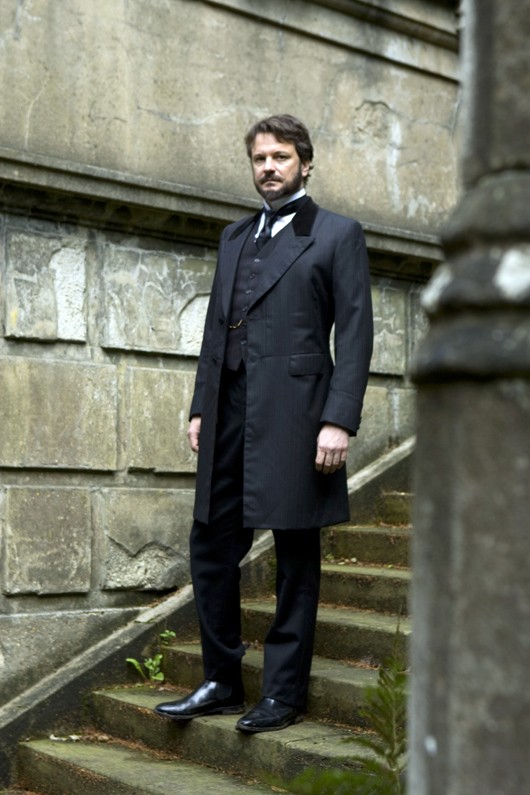
Technically, both stories, My Heart Is Broken and Prue, published in 1964 and 1981, belong to the time period of the second wave feminism (1960s-1990). As such, I expected the works to portray some of the characteristics of the second wave feminist movement, refusing social and cultural inequalities, or “throwing ‘oppressive’ feminine artifacts such as bras, girdles, high-heels, makeup and false eyelashes into the trashcan.” (Rampton)
Published
during the early stages of the second wave feminism, My Heat Is Broken has two potential protagonists: Mrs. Thompson and
Jeannie. By examining their conversation and attitude towards the main incident
of the story, Jeannie’s rape, we can easily assume the contrasting characters
of the two main characters. On the surface, their attitudes contrast in a way
that Jeannie seems calm – applying “a bottle of coral-pink Cutex nail polish”-
while Mrs. Thompson is worried, keeping Jeannie’s company because she thinks Jeannie
“might be needing me.” On the other hand, under the surface, their attitudes shift.
Jeannie reveals signs of shock: “I already can’t remember it…I was walking the
wrong way- I couldn’t talk anyway” while Mrs. Thompson shows her true feelings:
“Women don’t know when they’re well off. Here you’ve got a good, sensible
husband working for you- You have to go and do a terrible thing.”
Even
disregarding Jeannie’s rape, the general opinion of women and gender role of
the two ladies differ. Mrs. Thompson is conservative, denying “peroxides”, pursuing
lovely homes and a life where she “get some curtains up and some carpets down”
until her husband is home. “Fooling around” with her hair and having “grease
spattered behind the stove”, Jeannie is more carefree and absentminded. She
finds nothing wrong with taking a walk “like a little girl… in high heels… with
a purse…and a hat” on her head.
Up
to this point, I appreciated the feminist insight of Jeannie denying the
standardized role of women as a housewife, having freedom over her personal
time, or being unrestricted of her appearance, with Mrs. Thompson setting a
counterexample. However, in the last page of the story, Jeannie wishes that the
rapist “could at least have liked” her and Mrs. Thompson wonders “if her heart
had ever been broken, too.” They disappointed me by both turning out to be naïve
female characters that depend on men for their happiness.
Written
closer to the third wave feminism period, Prue’s
protagonist is a 40-year-old, seemingly light-hearted woman: Prue. As she “presents
her life in anecdotes”, Prue is treated insincerely in all her relationships,
but pretends not to care by always responding with a joke.
In
her relationship with Gordan, she is portrayed much like a safety net of
Gordan. Not only when Gordan describes their marriage as “the Problem” does she
“lightly” answer “What a problem?”, but when he confesses “I think I’m in love
with this person…but I do think I want to marry you”, she jokes “oh… after you
get over being in love?” Even worse, it seems like for Gordan, the crème brûlée
is more important than Prue’s feelings. In terms of her relationship with her children,
she rarely acts nor is treated seriously as a mother: “they bring presents, try
to do her accounts,…. She is delighted with their presents, listens to their
advice…” Lastly, although “everybody hopes that” she is not staying in Toronto
because of Gordan, gossiping about and mocking her personal life, “She would
laugh at the idea” and “people always feel cheered up after listening to her.”
As
a lover, a mother, and a female in society, Prue sets an example for the
readers “what not to be” not only in terms of feminism, but also in terms of
the equality of human race in general. I believe the author’s description of
Prue’s method of coping with life - treating herself like the cufflink: “a
reminder” yet “an intimate prank, a piece of nonsense” “not of great value but
not worthless” in the tobacco tin, being “more or less forgotten” – is what
really drew me away from viewing this work as a feminist literature.
Although
the two stories might have promoted women’s equality from a macroscopic perspective
- having been written by a female author about a female character –, the
motives and the content of both stories failed to reach me as a reader seeking
for a more active, firsthand feminist movement. In a way, they both seem to
belong to the third wave feminism where the concept of “feminism” is often not
to be defined in a single manner. Thus, the ambiguousness had a negative impact
on my evaluation of both stories.
<Works Cited>
Rampton, Martha. “The
Three Waves of Feminism” Pacific
University.Vol. 41 No. 2, Fall 2008

